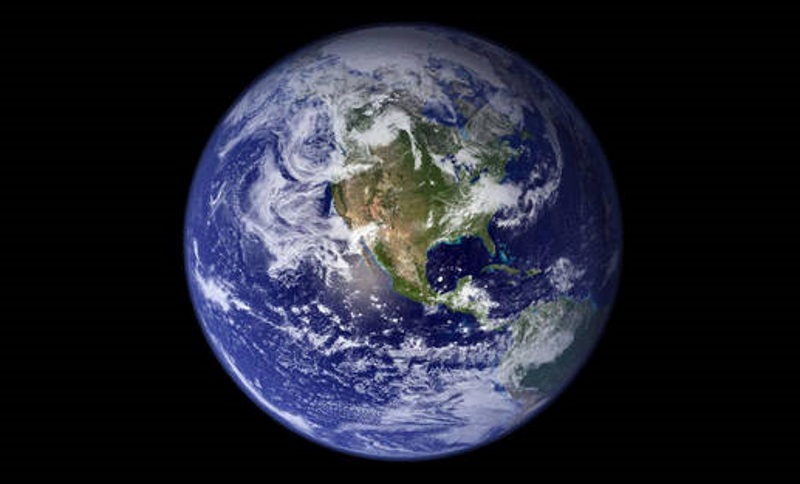- Home
- Science
- Science News
- No Asteroid Threatening to Hit Earth Next Month: Nasa
No Asteroid Threatening to Hit Earth Next Month: Nasa

Numerous recent blogs and Web postings are erroneously claiming that an asteroid will impact Earth sometime between September 15 and 28, Nasa said.
On one of those dates, as rumours go, there will be an impact - "evidently" near Puerto Rico - causing wanton destruction to the Atlantic and Gulf coasts of the US and Mexico, as well as Central and South America, it said.
"There is no scientific basis - not one shred of evidence - that an asteroid or any other celestial object will impact Earth on those dates," said Paul Chodas, manager of Nasa's Near-Earth Object office at the Jet Propulsion Laboratory in Pasadena, California.
In fact, according to Nasa's Near-Earth Object Observations Programme, there have been no asteroids or comets observed that would impact Earth any time in the foreseeable future.
All known Potentially Hazardous Asteroids have less than a 0.01 percent chance of impacting Earth in the next 100 years, Nasa said.
The Near-Earth Object office at JPL is a key group involved with the international collaboration of astronomers and scientists who keep watch on the sky with their telescopes, looking for asteroids that could do harm to our planet and predicting their paths through space for the foreseeable future.
If there were any observations on anything headed our way, the group would know about it, the US space agency said.
"If there were any object large enough to do that type of destruction in September, we would have seen something of it by now," Chodas said.
"This isn't the first time a wild, unsubstantiated claim of a celestial object about to impact Earth has been made, and unfortunately, it probably won't be the last. It seems to be a perennial favourite of the World Wide Web," the US space agency said.
In 2011 there were rumours about the so-called "doomsday" comet Elenin, which never posed any danger of harming Earth and broke up into a stream of small debris out in space. Then there were Internet assertions surrounding the end of the Mayan calendar on December 21, 2012, insisting the world would end with a large asteroid impact.
And just this year, asteroids 2004 BL86 and 2014 YB35 were said to be on dangerous near-Earth trajectories, but their flybys of our planet in January and March went without incident.
"Again, there is no existing evidence that an asteroid or any other celestial object is on a trajectory that will impact Earth," said Chodas.
"In fact, not a single one of the known objects has any credible chance of hitting our planet over the next century," he added.
For the latest tech news and reviews, follow Gadgets 360 on X, Facebook, WhatsApp, Threads and Google News. For the latest videos on gadgets and tech, subscribe to our YouTube channel. If you want to know everything about top influencers, follow our in-house Who'sThat360 on Instagram and YouTube.
Related Stories
- Amazon Great Indian Festival 2024
- Big Billion Days 2024
- Apple Vision Pro
- Oneplus 12
- iPhone 14
- Apple iPhone 15
- OnePlus Nord CE 3 Lite 5G
- iPhone 13
- Xiaomi 14 Pro
- Oppo Find N3
- Tecno Spark Go (2023)
- Realme V30
- Best Phones Under 25000
- Samsung Galaxy S24 Series
- Cryptocurrency
- iQoo 12
- Samsung Galaxy S24 Ultra
- Giottus
- Samsung Galaxy Z Flip 5
- Apple 'Scary Fast'
- Housefull 5
- GoPro Hero 12 Black Review
- Invincible Season 2
- JioGlass
- HD Ready TV
- Laptop Under 50000
- Smartwatch Under 10000
- Latest Mobile Phones
- Compare Phones
- Vivo Y18t
- Honor X9c
- Honor Magic 7 Pro
- Honor Magic 7
- Sharp Aquos R9 Pro
- Xiaomi 15
- Xiaomi 15 Pro
- Redmi A3 Pro
- Asus Zenbook S 14
- MacBook Pro 16-inch (M4 Max, 2024)
- Huawei MatePad 11.5
- Acer Iconia Tab 10.36 (iM10-22)
- Redmi Band 3
- Xiaomi Smart Band 9 Pro
- Sony 65 Inches Ultra HD (4K) LED Smart TV (KD-65X74L)
- TCL 55 Inches Ultra HD (4K) LED Smart TV (55C61B)
- Sony PlayStation 5 Pro
- Sony PlayStation 5 Slim Digital Edition
- Acer 1.5 Ton 5 Star Inverter Split AC (AR15AS5INGMA)
- Daikin 1.5 Ton 4 Star Inverter Split AC (FTKT50UV16V+RKT50UV16V)
















